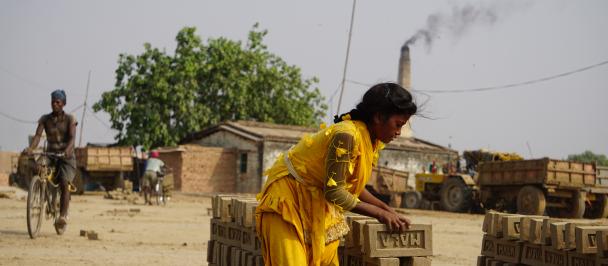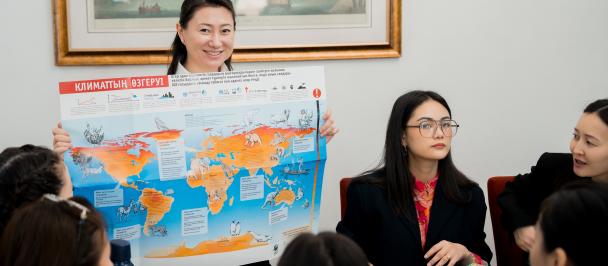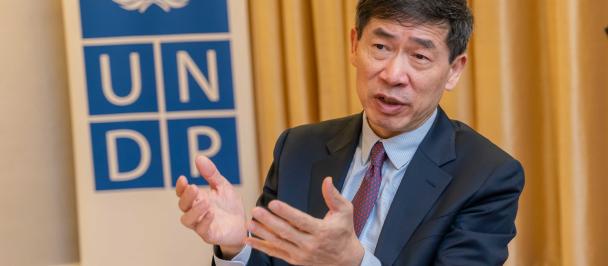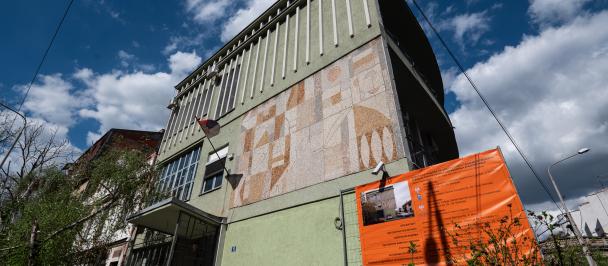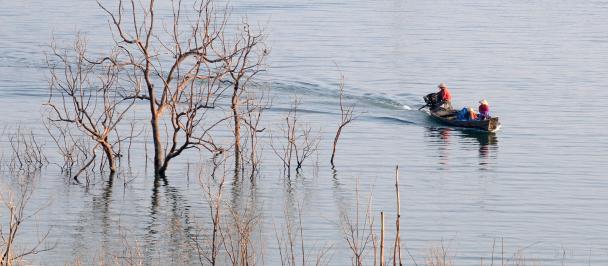National Gap Analysis Workshop: Tanzania's Drive to Enhance Meteorological Services
May 16, 2023
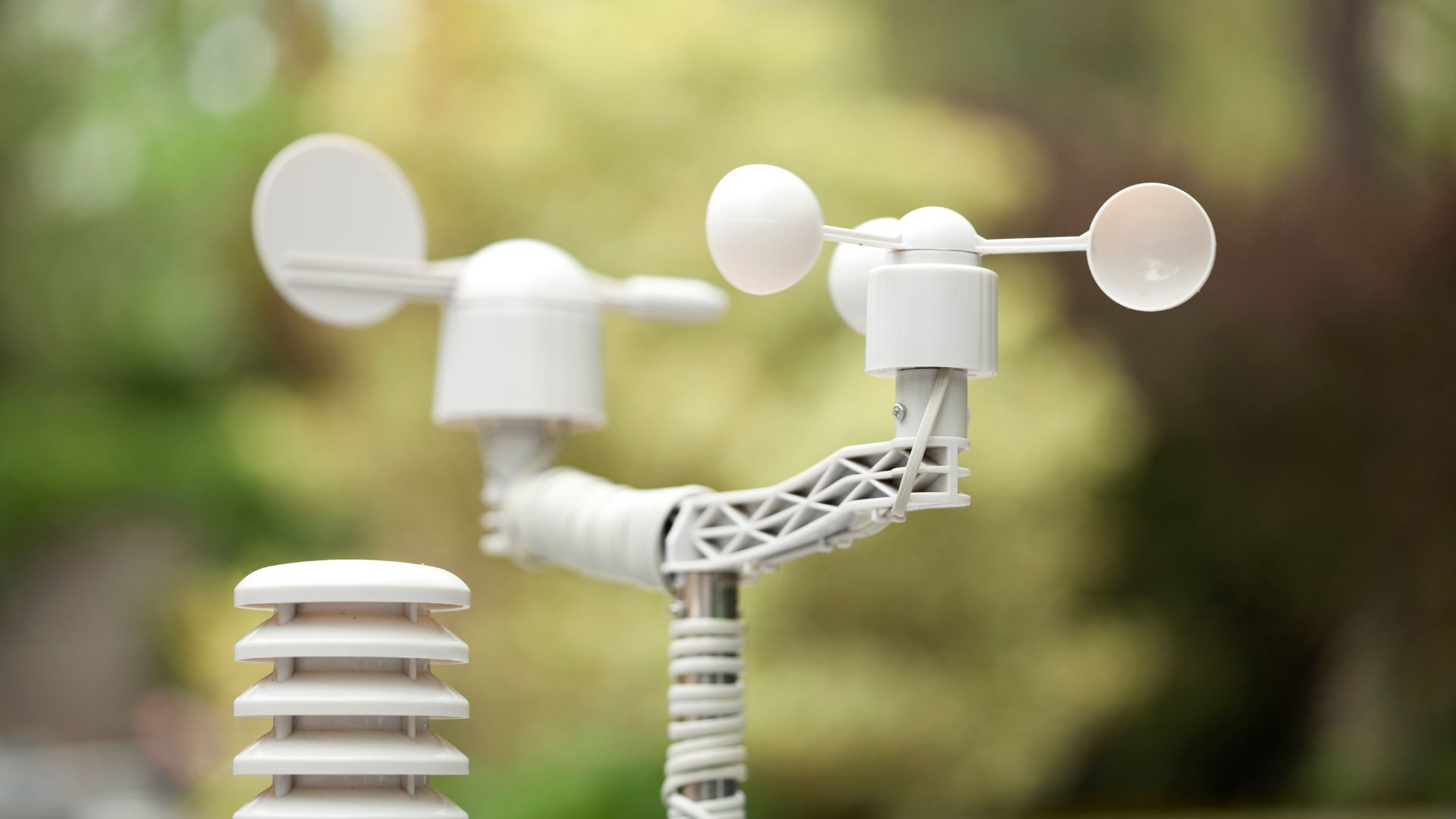
Measuring the Winds: The Anemometer at Work
Dodoma region recently hosted a significant event, the National Gap Analysis Workshop, where meteorological experts and stakeholders gathered to fortify meteorological services at local, regional, and global levels. This collaborative effort involved the Tanzania Meteorological Authority (TMA) taking centre stage, along with the Danish Meteorological Institute, to align with the transformative Systematic Observation Financing Facility (SOFF) readiness phase. The United Nations Development Programme (UNDP), in partnership with the World Meteorological Organization (WMO) and the United Nations Environment Programme (UNEP), spearheads this endeavour.
The primary objective of the National Gap Analysis Workshop was to address gaps in existing weather and climate observation systems while strengthening TMA's services. By adhering to the regulations of the Global Basic Observing Network (GBON), the workshop aimed to foster the generation and sharing of essential weather and climate observations on a global scale.
During the workshop, Ms. Christine Musisi, the UNDP Resident Representative, emphasized the critical importance of enhancing weather and climate observation systems in Tanzania and worldwide. “Accurate and reliable weather and climate information play a vital role in various sectors, including agriculture, water management, energy, transport, and health. It has been observed that extreme weather events can cost developing countries up to 2% of their GDP annually”. She said.
Reliable and accurate weather and climate observations are essential for informed decision-making, especially in the context of sustainable development. Strengthening meteorological services and adhering to global standards will significantly contribute to improved understanding and management of weather and climate-related challenges. The comprehensive data collected through this initiative will empower policymakers, researchers, and communities to tackle climate change, plan for extreme weather events, and formulate effective strategies for resilience and adaptation.
UNDP remains committed to promoting risk-informed development, working alongside national partners to strengthen data availability, digital transformation, and disaster risk management. By enhancing national and subnational frameworks, providing access to risk information and early warning systems, and strengthening preparedness and recovery measures, UNDP supports the realisation of the SDGs and the Sendai Framework for Disaster Risk Reduction. Together, we can build a more resilient and sustainable future.
The National Gap Analysis Workshop held in Dodoma, Tanzania, signifies a significant leap forward in fortifying weather and climate observation systems. The collaborative efforts of the Tanzania Meteorological Authority, the Danish Meteorological Institute, and the support from UNDP, WMO, and UNEP exemplify the power of global collaboration in addressing climate challenges. Investments in robust meteorological infrastructure and data collection pave the way for a more resilient and sustainable future.
Over the past decade, UNDP has closely worked with TMA to ensure the availability of accurate and reliable weather and climate information. Noteworthy projects, such as the Strengthening Climate Information and Early Warning System in Tanzania for Climate Resilient Development and Adaptation to Climate Change, have enhanced the infrastructure for the dissemination of real-time weather observations. These efforts include technical support and training to TMA staff, improved weather monitoring equipment, and upgraded weather monitoring stations. The accuracy and reliability of TMA's surface weather and climate observations have greatly improved as a result.
Recognising the remaining gaps in climate information, UNDP, in partnership with WMO and UNEP, established the Systematic Observation Financing Facility (SOFF). This funding facility aims to support countries financially and technically to meet WMO standards for hydromet observations. By addressing missing weather and climate observations globally, SOFF enhances weather forecasting, climate monitoring, and early warning systems for natural hazards, benefiting sectors such as agriculture, water management, energy, transport, and health.
The SOFF initiative aligns with the UN Secretary General's Early Warnings for All Initiative, which aims to improve the availability of weather and climate observations from remote and data-sparse areas. This is vital for accurate weather forecasts, early warning systems, and climate information services that save lives, protect livelihoods, and build resilience across all sectors.
UNDP commends TMA and the Danish Meteorological Institute for successfully concluding the first step of the gap analysis, a key element of the SOFF Readiness Phase. The findings from this analysis will inform the Investment Phase, where UNDP's role will be prominent. The Investment Phase will support closing the identified gaps, followed by the Compliance Phase, which ensures sustained GBON compliance and improved weather forecasts and climate analysis products.
UNDP acknowledges and commends the strong ownership shown by the Tanzanian government through TMA. The collaboration with the Danish Meteorological Institute is expected to drive the process forward from the readiness phase to the investment phase. The productive and informative discussions held during the National Gap Analysis Workshop will pave the way for conclusive next steps.
UNDP remains committed to promoting risk-informed development, working alongside national partners to strengthen data availability, digital transformation, and disaster risk management. By enhancing national and subnational frameworks, providing access to risk information and early warning systems, and strengthening preparedness and recovery measures, UNDP supports the realization of the SDGs and the Sendai Framework for Disaster Risk Reduction. Together, we can build a more resilient and sustainable future.

 Locations
Locations